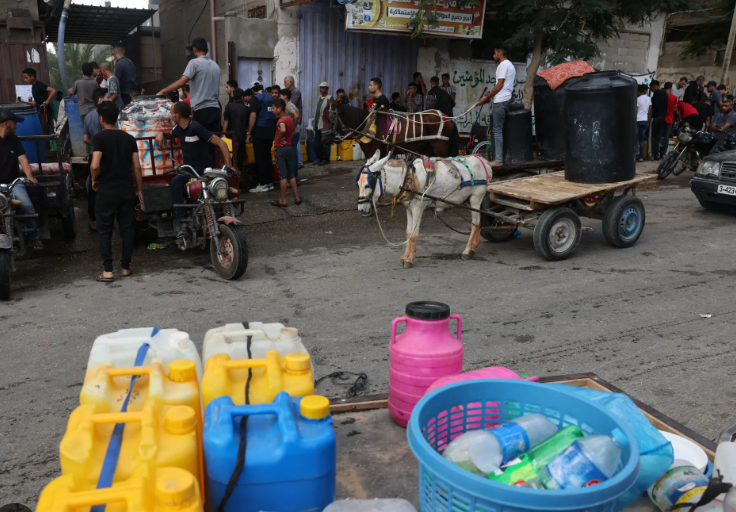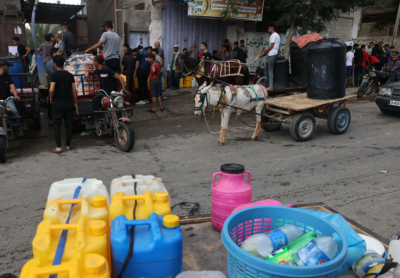Zaki Abu Selima, a resident of the Gaza Strip, compared the taste of water now flowing into the devastated area from a desalination project in Egypt to being "sweet as sugar," following weeks of Israeli bombardment and blockade that forced him and many others to drink unclean and salty water. The water is flowing to Gaza from three stations established by the UAE on the Egyptian side of the border, and is being pumped to Rafah after beginning operation on Tuesday, as part of efforts to alleviate one of the biggest humanitarian challenges in Gaza.
However, with an urgent need for clean water, the destroyed infrastructure in Gaza makes it difficult to distribute it beyond the border city of Rafah, let alone pump it into rooftop tanks that allow people to use it in the remaining buildings in the area.
**Power Outage in Gaza**
Israel cut off all external electricity supplies to Gaza when the war began on October 7, following a surprise attack by Hamas on Israeli towns that resulted in the deaths of 1,200 people, according to Israel. Additionally, the blockade of the Gaza Strip has halted most fuel supplies, meaning that local power generators are also non-operational.
Even in Rafah, where the Israeli military has ordered civilians to seek shelter, the scarcity of food and clean water is so severe that it is causing people to lose weight and fall ill. At a water tank between the houses in Rafah, a group of children takes turns drinking with their hands from a flowing pipe, a rare sight in recent weeks.
**Shortage for Operating Wells**
Mohammed Sobhi Abu Rayala, director of the water and sewage department in Jabalia municipality, stated that the displacement of thousands of Gaza residents to Rafah has exacerbated the existing problems in the city, where there is a shortage of fuel to operate the wells. Pipelines stretching 900 meters between the stations on the Egyptian border and the Gaza Strip desalinate approximately 600,000 gallons of water daily, covering the needs of around 300,000 residents.




